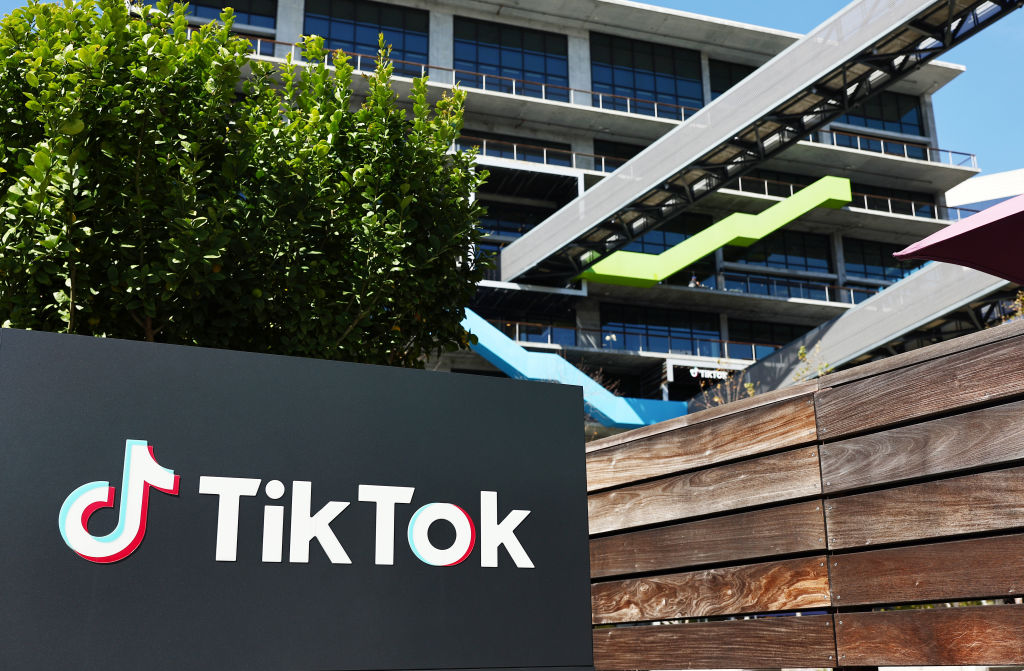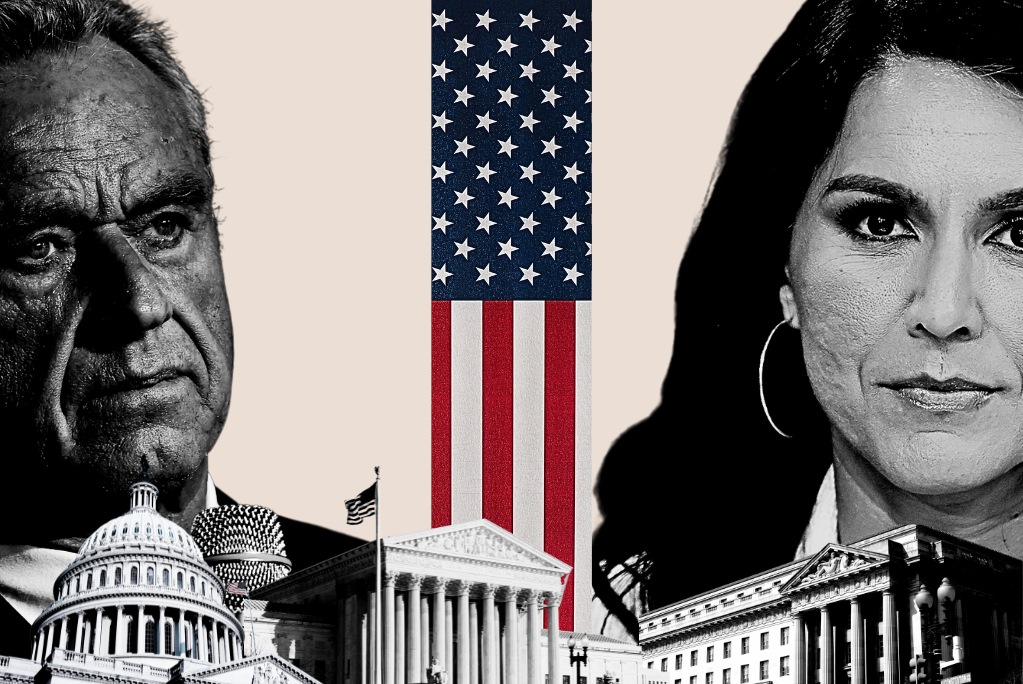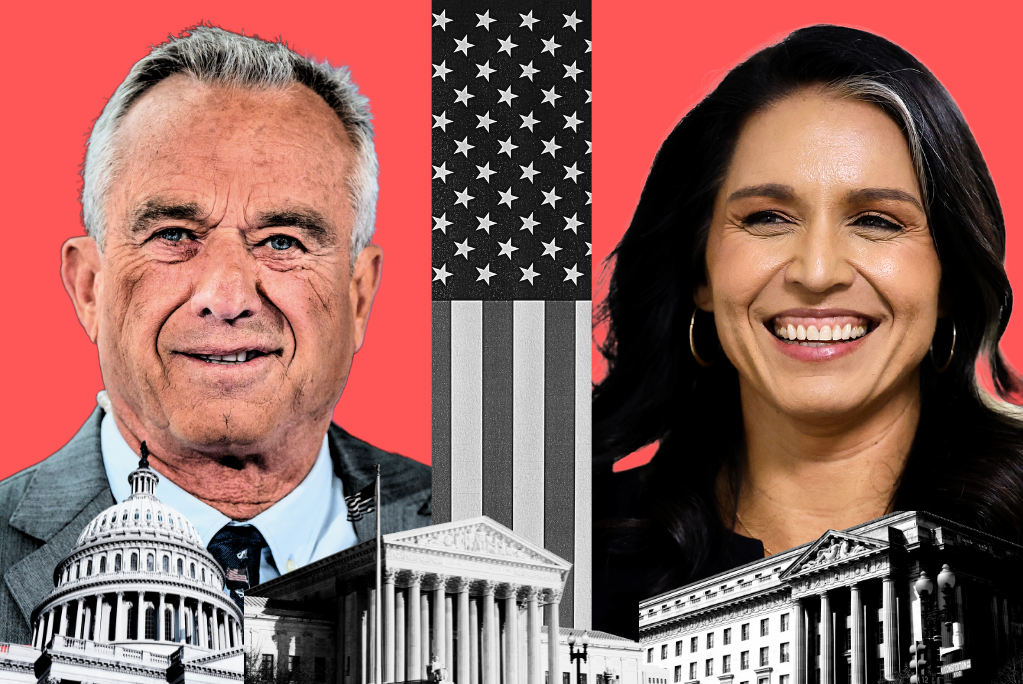In 1962, Congress passed a law restricting the ability of Americans to subscribe to foreign communist periodicals. But three years later, in Lamont v. Postmaster General, the Supreme Court issued a unanimous rebuke to Congress, ruling that Americans had the right to unrestricted access to that material.
One of the publications that had been targeted was the Peking Review, a propaganda outlet of the Chinese Communist Party. Even at the height of the Cold War and even dealing with overt propaganda, the court refused to abridge the First Amendment right of Americans to consume the material of their choice, no matter how wrong or wicked it happened to be.
Today, although the platform is different and the format has changed, America is once again faced with a similar question. Over the past two weeks, Congress has been rushing through a bill that threatens to ban short-form video app TikTok unless its Chinese parent company, ByteDance, divests from its U.S. operations. Proponents of the law are concerned about Chinese government officials using the platform to spread propaganda as well as potentially gathering data on U.S. citizens.
One possible outcome from the bill would be a forced sale of TikTok in the U.S. It would be messy, granting a $250 billion global company only six months to sell its operations to a competitor in one of its most valuable regional markets. That would create the perfect conditions for a hasty fire sale at submarket pricing and likely draw the scrutiny of regulators, given the size of the acquisition. China has also threatened to block any sale, making a ban more likely. It is a recipe for failure.
Looking beyond the questionable divestment timeline, this TikTok controversy poses a problem unique to the digital era. Supporters of the bill, who justify the forced sale and ban on national security grounds, are worried data gathered from the app could be used to surveil the 170 million U.S. residents who use it.
The federal government does have a legitimate interest in protecting the American people from surveillance by foreign governments. But the powers being sought by Congress represent the most radical options on the table, when other alternatives could better balance security and the protection of users’ free speech rights. Congress has a range of regulatory options that fall in between doing nothing and either forcing divestment or threatening a ban.
For example, national security concerns could justify closer government monitoring of TikTok, such as mandated, routine, unannounced audits by an executive agency of TikTok’s data or its communications with parent company ByteDance. TikTok has already spent $1.5 billion on Project Texas, its plan for storing American data in America (although critics point to evidence that the firewall isn’t as solid as TikTok avers). But Congress could take an extra step and mandate data localization for all companies owned by foreign adversary nations and then police any such breaches. Congress could require that apps disclose the national origin of their parent companies to users. While these alternatives all involve trade-offs, they would have a much less significant impact on speech than the proposed forced sale or ban.
Supporters of the bill have dismissed free speech concerns by arguing that it is not a “ban.” After all, if ByteDance sells then TikTok users’ speech would be unaffected since the app would only be banned if ByteDance refused to comply. But if ByteDance were unable to find an appropriate buyer in the short time frame granted by Congress, the bill would stiffly penalize app stores that allow users to download TikTok, resulting in a functional ban of the app while removing a major forum for both the production and consumption of speech.
And this restriction on speech could have devastating effects for the 7 million TikTok users who derive either part or all of their income from businesses based on the platform. Commerce on the site could grind to a halt, damaging the livelihoods of business owners who have spent years building a customer base in order to sell products on TikTok. It could also devastate users who have grown an audience on the app and turned creating content into a full-time profession.
Some proponents of the bill point to the existence of similar apps—such as Instagram’s Reels or YouTube’s Shorts—to suggest that losing TikTok would not be much of a loss. However, TikTok’s users choose it over competing products, and do so for any number of reasons, from its audience to its features. The fact that alternatives exist does not excuse or erase a violation of the First Amendment.
The mere suspicion that TikTok might someday be used to monitor American citizens or manipulate elections is not a substitute for the kind of evidence needed to justify a ban in court. Much of the data TikTok is allegedly collecting on users can be purchased on the open market, for as little as 12 cents a person—if the CCP really wanted this information, it could access it via means that wouldn’t kill TikTok.
Opposing Debate
Those worried about the potential abuse of TikTok by Chinese authorities should also spend some time worrying about the ways this bill could lead to abuses by the American government. While the bill is primarily focused on TikTok, it cedes a vast, new regulatory power to the executive branch over both foreign and American companies.
As former Rep. Justin Amash has noted, under the terms of the bill any company—whether based in the U.S. or not—with at least 20 percent ownership by shareholders from a “foreign adversary” country, as designated by the secretary of commerce, could be subject to a similar forced sale or ban. That already includes potentially hundreds of U.S. companies.
Opposing a TikTok ban does not necessitate embracing TikTok or dismissing the potential for Chinese government misuse of the app. Opposing a TikTok sale or ban is a product of the belief that Americans don’t prohibit access to information; instead, we trust our citizens with the freedom to choose what they watch and read in an informational marketplace, believing that the truth will ultimately win out.
A TikTok ban not only defies this tradition but squanders an opportunity for the United States to continue to distinguish itself from countries around the world where it is the government, and not the people, that decides what information is allowed.





Please note that we at The Dispatch hold ourselves, our work, and our commenters to a higher standard than other places on the internet. We welcome comments that foster genuine debate or discussion—including comments critical of us or our work—but responses that include ad hominem attacks on fellow Dispatch members or are intended to stoke fear and anger may be moderated.
With your membership, you only have the ability to comment on The Morning Dispatch articles. Consider upgrading to join the conversation everywhere.